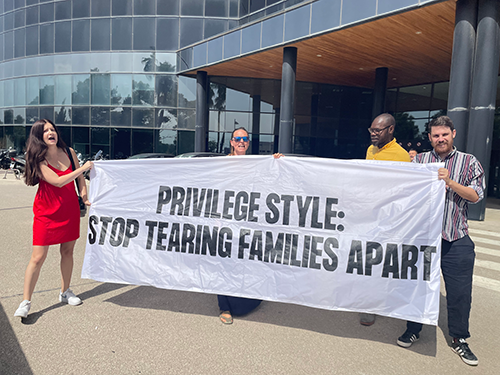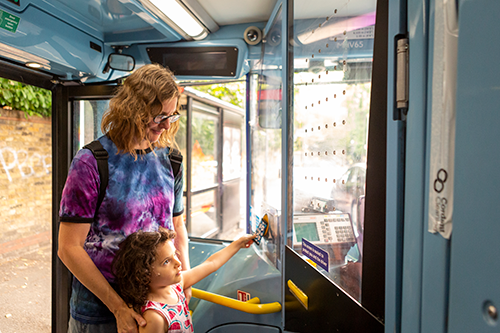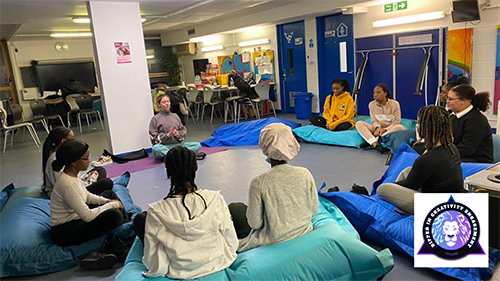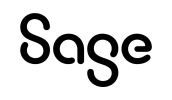Campaigning and Advocacy 2023 winners: Freedom from Torture
Why they won
- Outcomes: Successfully convinced four of the six airlines (so far) to rule themselves out of the contracts and led a government minister to concede publicly that the policy is unlikely to be workable
- Innovation: Decided to target private sector suppliers while other NGOs focused on legal challenges and used creative campaign tactics
- Value for money: The campaign cost just £10,000
- Best practice: Centred torture survivors and those with lived experience of the asylum system in the design and execution of the campaign
Freedom from Torture was horrified by the UK government’s plans announced in April 2022 to fly asylum seekers to Rwanda to have their asylum claims processed, especially as survivors of torture were among those being threatened with removal. The charity wants to see safe, legal routes reinstated for refugees to come to the UK, and a fair asylum process in place. The charity was also worried that if the UK could abdicate its obligations under the international Refugee Convention, other countries could try to follow suit and these hard-won human rights would be severely threatened, not just here but everywhere.
 While other NGOs focused on challenging the legality of the deportation policy, Freedom from Torture decided to target the six airlines that were in the running for contracts to fly the refugees to Rwanda, reasoning that corporate actors would be more susceptible to public pressure than the current government. CEO Sonya Sceats said: “We decided we needed to take a new approach to campaigning because policy-focused parliamentary campaigning in this political context was no longer sufficient.”
While other NGOs focused on challenging the legality of the deportation policy, Freedom from Torture decided to target the six airlines that were in the running for contracts to fly the refugees to Rwanda, reasoning that corporate actors would be more susceptible to public pressure than the current government. CEO Sonya Sceats said: “We decided we needed to take a new approach to campaigning because policy-focused parliamentary campaigning in this political context was no longer sufficient.”
#StopTheFlights aimed to compel the airlines to rule themselves out of the deportation scheme by damaging their reputations locally and internationally. The multi-channel strategy comprised digital and traditional media, petitions and email campaigns alongside headline-grabbing direct actions. A concerted effort to bring humour and playfulness to the issue resulted in spoof websites and social media posts, the presentation of a ‘worst airline of the year’ award and the handing out of one-way tickets to Rwanda at the Conservative Party conference.
Torture survivors contributed directly to the design and implementation of the campaign and many signed up for a campaign leadership programme launched by the charity, learning the components of organising and campaign strategy.
Freedom from Torture says it would have opposed the policy whichever country had been chosen as the destination. “What’s at stake here is the legacy following the Holocaust – the Refugee Convention that says people can get somewhere safe by any means necessary and claim asylum on arrival,” said Sceats. “This is a StopTheFlights campaign, not a StopRwanda campaign – this is not about Rwanda. It’s about whatever country the government is trying to circumvent its obligations through.”
Within a few days of the campaign’s launch last summer, two of the six airlines withdrew from the scheme, and by mid-October, four of the six had ruled themselves out. Freedom from Torture is continuing the campaign against Hi Fly and Iberojet but is certain that the campaign – which cost just £10,000 – has severely hampered the UK government’s ability to implement the Rwanda scheme.
Charity Awards judge Ruth Davison praised the “enormous cost-effectiveness” of the campaign and said the charity used “really creative tactics”.
“This is what happens when you really embed a genuine commitment to lived experience throughout your organisation, as they have done for over a decade. And even if they haven’t permanently stopped this policy, they have shifted the public debate – you can see it coming up again and again, the questioning of whether this is an OK way to behave as a nation, as a society.”
Judge Karin Woodley was impressed by the charity’s “masterstroke” tactic of embarrassing the government by shaming their private-sector partners, as well as its efforts to highlight that many of those being targeted for deportation were survivors of torture and not illegal immigrants. She described the campaign as a “very contemporary, 21st-century approach”.
CC Reg no. 1000340
Highly Commended
Campaign for Better Transport
Despite their social, economic and environmental importance, bus networks have been under the cosh: facing funding cuts, rising fares and falling passenger numbers. One in four bus services have been cut in the last decade, isolating people and sucking the life out of communities. The Campaign for Better Transport had already identified the need for a national strategy to protect the bus network, and as Covid threatened further decline the charity launched a campaign. Using research, political lobbying and social and traditional media activity, it aimed to raise awareness of the plight of buses and convince the government to provide more funding to support services. The government listened: in April 2020 it announced £400m to keep local transport services running during lockdown, and has since extended this support twice. In March 2021 it launched Bus Back Better, a national strategy for buses backed by £3bn. And single bus fares in England have been capped at £2 for the first half of 2023 following successful lobbying by the charity; it is now calling for this to be extended indefinitely.
Solace Women’s Aid
As the needs of women grew during the pandemic, Solace Women’s Aid saw an opportunity to link up large and small organisations across the women’s sector in England, Scotland and Northern Ireland to share best practice, cascade knowledge and experience, and build a sense of community and common purpose. Solace led a partnership of 15 organisations that mapped existing services and identified gaps, created an online Centre of Excellence to share solutions and good practice, and established a £300,000 grants scheme for local initiatives created by women, for women. Over 18 months, the Labyrinth project delivered a huge range of activities that helped to connect organisations, boost their capacity to support service users, and gave them a stronger voice in local strategies and decision-making. The project smashed all its targets, delivering training to more than 1,200 individuals and engaging almost 35,000 women.



